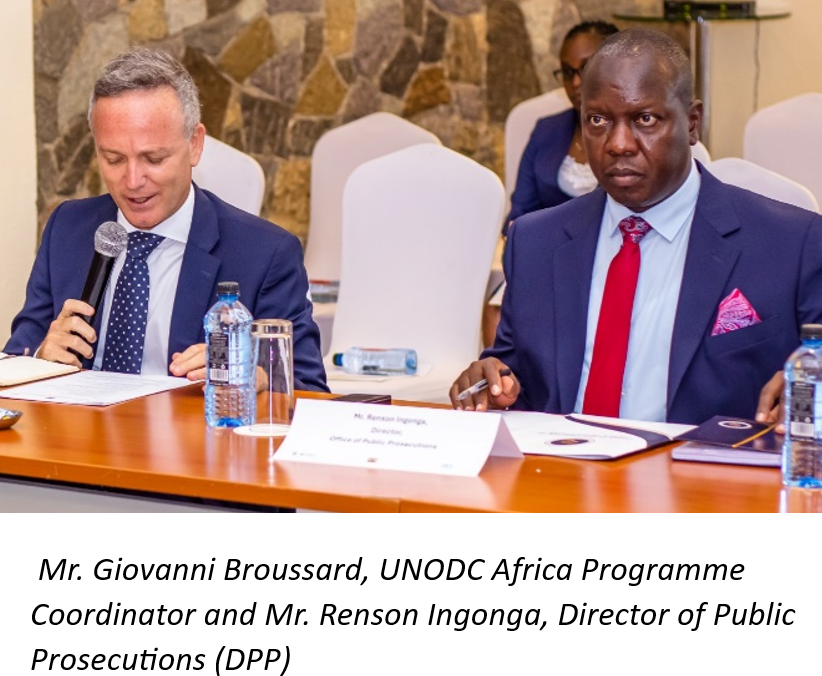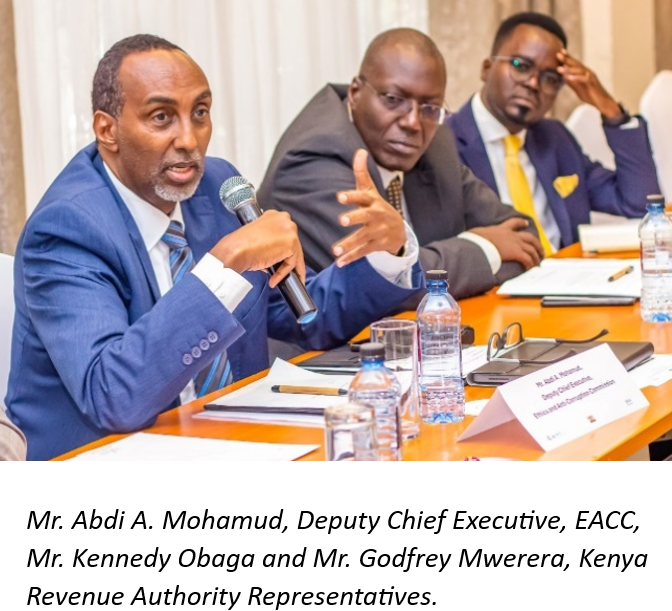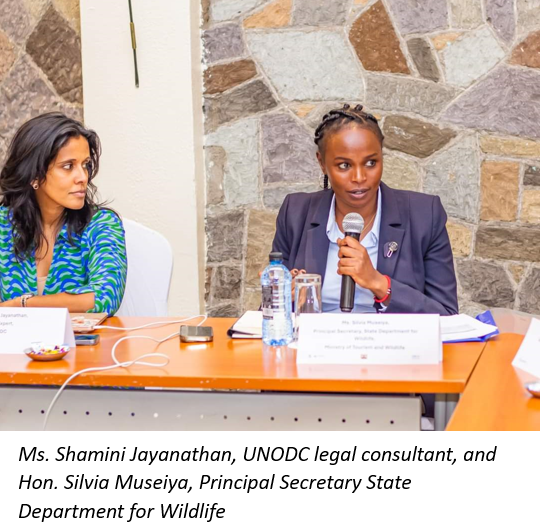UNODC Eastern Africa News and Stories
You are here: Home / News
High-Level Dialogue on crimes that affect the environment in Kenya
 Nairobi, Kenya – 12 February 2024. At international level Kenya has demonstrated commitment to the climate agenda by hosting the first Africa Climate Summit in 2023. At domestic level, Kenya is exploring new approaches to preserve its biodiversity, reduce pollution and reduce climate change. In fact, Kenya has taken its first steps in developing a novel approach focusing on the fight against all forms of crimes that affect the environment, from wildlife trafficking to illegal waste dumping and deforestation. The Office of the Director of Public Prosecutions in Kenya, in partnership with UNDOC and the United Nations Environment Programme, organised a High-Level Dialogue to address the crimes that affect the environment. This event was the first of its kind to adopt a sector approach for all types of crimes that affect the environment. In doing so, it acted as a bridge between traditional environmental institutions and criminal justice agencies.
Nairobi, Kenya – 12 February 2024. At international level Kenya has demonstrated commitment to the climate agenda by hosting the first Africa Climate Summit in 2023. At domestic level, Kenya is exploring new approaches to preserve its biodiversity, reduce pollution and reduce climate change. In fact, Kenya has taken its first steps in developing a novel approach focusing on the fight against all forms of crimes that affect the environment, from wildlife trafficking to illegal waste dumping and deforestation. The Office of the Director of Public Prosecutions in Kenya, in partnership with UNDOC and the United Nations Environment Programme, organised a High-Level Dialogue to address the crimes that affect the environment. This event was the first of its kind to adopt a sector approach for all types of crimes that affect the environment. In doing so, it acted as a bridge between traditional environmental institutions and criminal justice agencies.
Mr. Renson Ingonga, the Director of Public Prosecution, set the tone by underscoring Kenya's commitment to climate change mitigation and environmental protection. He emphasized the critical role of his office in ensuring justice and accountability for environmental violations and underscored that this “Dialogue is not merely a conversation but a cornerstone in our efforts to prevent environmental harm and ensure justice and accountability for violations”.
 The discussions highlighted the importance of understanding the serious nature of many offences that hurt the environment, despite the fact the current legislations not always provide adequate definitions of criminal acts or proportionate penalties. This in turn makes law enforcement less effective. Participants also highlighted that the most serious offences need to be prosecuted as criminal cases instead of being handled through the administrative procedures. Several criminal justice practitioners acknowledged their familiarity with offences related to wildlife and forests legislations, but also admitted a lack of awareness and preparedness regarding other environmentally critical behaviours such as crimes in the minerals, fisheries and waste sectors.
The discussions highlighted the importance of understanding the serious nature of many offences that hurt the environment, despite the fact the current legislations not always provide adequate definitions of criminal acts or proportionate penalties. This in turn makes law enforcement less effective. Participants also highlighted that the most serious offences need to be prosecuted as criminal cases instead of being handled through the administrative procedures. Several criminal justice practitioners acknowledged their familiarity with offences related to wildlife and forests legislations, but also admitted a lack of awareness and preparedness regarding other environmentally critical behaviours such as crimes in the minerals, fisheries and waste sectors.
Recommendations from the dialogue included conducting a legal analysis to identify gaps in the current legal framework and collecting information on cases reported to the National Environmental Management Agency, including their outcomes.
 “This dialogue was an eye-opener for many practitioners in the room. While Kenya must be commended for the progress made in the past 15 years in combating wildlife crimes, more needs to be done to protect the environment as a whole”. said Mr. Giovanni Broussard, the Africa Programme Coordinator of the UNODC Environment Team. “Entire ecosystems are threatened by criminal activities in economic sectors such as fisheries, mining, forestry and waste management due to the infiltration of criminal groups. This requires adequate responses at the sectoral level”.
“This dialogue was an eye-opener for many practitioners in the room. While Kenya must be commended for the progress made in the past 15 years in combating wildlife crimes, more needs to be done to protect the environment as a whole”. said Mr. Giovanni Broussard, the Africa Programme Coordinator of the UNODC Environment Team. “Entire ecosystems are threatened by criminal activities in economic sectors such as fisheries, mining, forestry and waste management due to the infiltration of criminal groups. This requires adequate responses at the sectoral level”.
The commitment of stakeholders to implement these recommendations, with support from UNODC and UNEP, marked a significant step towards a comprehensive and coordinated response to crimes that affect the environment in Kenya, in line with SDG 13 (climate action), 14 (life below water), 15 (life on land) and 16 (peace, justice and strong institutions) to mention a few.
For more information, please contact:
Mr. Giovanni Broussard (giovanni.broussard@un.org)
UNODC Africa Programme Coordinator
Environment Programme
United Nations Office on Drugs and Crime
Click here to visit the UNODC Environment Programme website.


